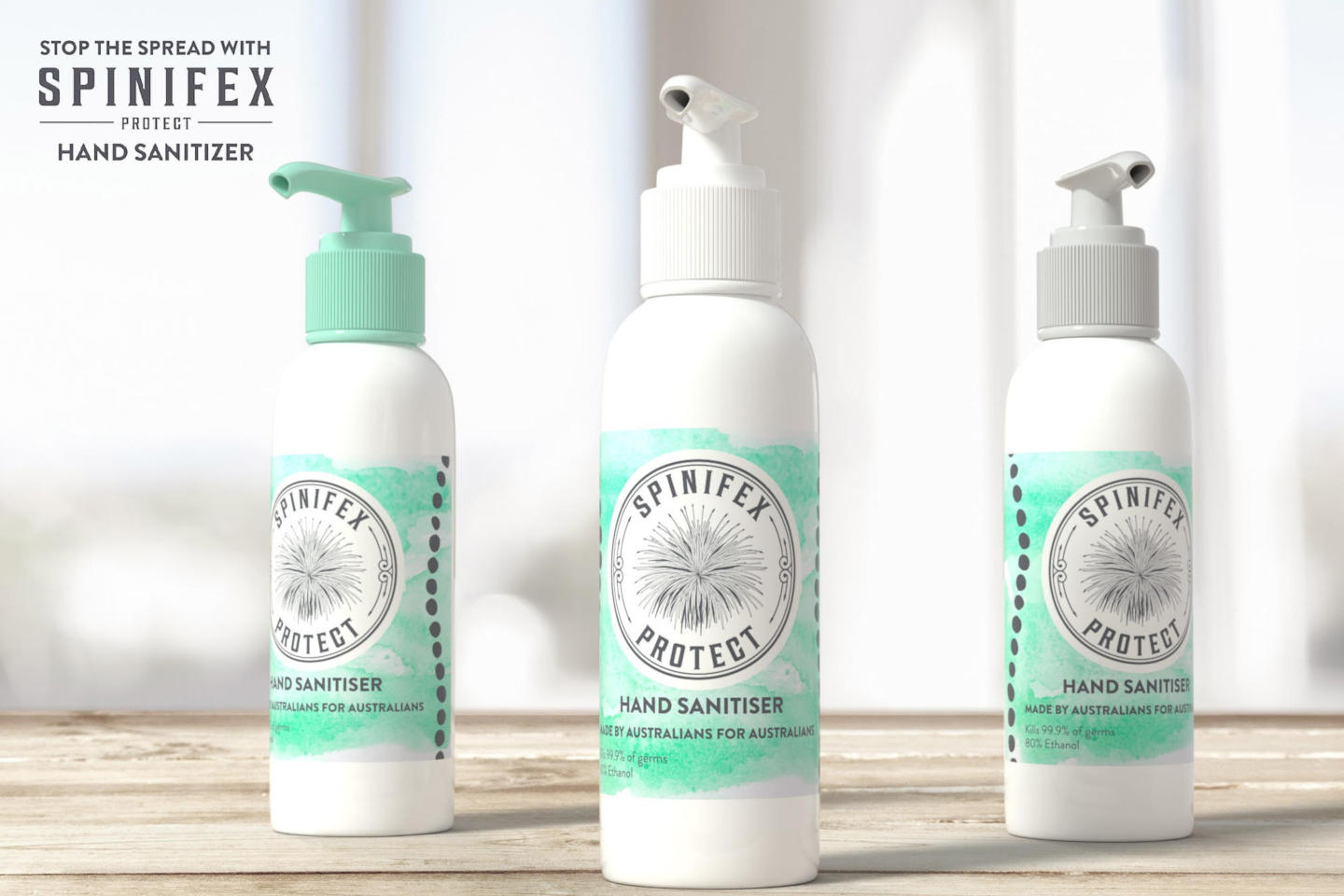A local brewing operation has sounded a dramatic warning to governments, urging approvals for new hand sanitiser products be fast-tracked to help mitigate the spread of novel coronavirus.


A local brewing operation has sounded a dramatic warning to governments, urging approvals for new hand sanitiser products be fast-tracked to help mitigate the spread of novel coronavirus.
Spinifex Brewing Co and Limestone Coast Brewery have repurposed their brewing facility in Malaga to become a hand sanitiser manufacturing operation, in an effort to address the critical shortage across the country.
The brewers are currently producing up to 1,000 litres of ethanol daily, which is then converted into high alcohol-content hand sanitiser suitable to protect against COVID-19 transmission.
Spinifex head of sales and marketing Adam Barnard said the company had received thousands of enquiries since launching its initiative earlier this week, with resources companies, healthcare organisations, pharmacies, parents, carers, homeless shelters, schools and indigenous communities among those desperate to source hand sanitiser.
However, Mr Barnard said he was told by the Therapeutic Goods Association that while new hand sanitiser products were being given priority, the targeted evaluation time ranged between 55 and 175 days.
“It is being made, but if we have to park this up because we have to wait for the TGA to take 55 days to approve it, people will die,” Mr Barnard told Business News.
“This is spiralling out of control. I have watched bureaucracy strangle tourism for 20 years. I will not stand by and watch it kill people.
“There is no holding back on the severity of what is about to occur as far as infection, and we have no way of protecting front line people in health services, DFES, WA Police, the list goes on.”
Mr Barnard said he was seeking urgent support from the state government to cut red tape and provide the funding needed to ramp-up production immediately.
“There are two things that we need,” he said. “One is we need facilitation to fast-track the approvals process to a minimum of hours, not days.
“And we want to expand production by way of a repayable loan; we will pay interest.
“We are not asking for a handout, but at the moment it is too chaotic to get the funds to ramp-up to the production level we need to ramp-up to.
“Other places are making it, but it is so insignificant in volume. We are the only facility we believe that has the capacity to ramp-up to meet demand.”
Mr Barnard said the hand sanitiser shortage was being felt particularly strongly in the north of the state, with remote indigenous communities on high alert.
“I know of Aboriginal health services in the Kimberley that have no hand sanitiser,” he said.
“They are at the greatest of all risk and their people are in tears on the phone. It’s a total meltdown.
“They should be making people make it. What we need is to be able to ramp-up – people are begging me to be on priority lists.
“We are heading for a phenomenal amount of deaths, which are preventable because nobody has any of this stuff.”
Eagle Bay-based winery and distillery Wise Wine has launched a similar initiative to Spinifex, repurposing the company’s gin still to produce hand sanitiser.
Wise Wine general manager Greg Garnish said he had also been inundated with enquiries but could not keep pace with demand as the maximum capacity of his still was 250 litres per day.
“If I had 1 million litres of it today I would have sold it all - it’s out of control,” Mr Garnish said.
Mr Garnish said the company had decided to go ahead and sell the product without TGA approval because of the critical need for hand sanitiser to be more readily available.
“We started spraying ethanol on our hands in our tasting room, and one afternoon a customer said to us ‘we own a GP clinic in Bunbury, and we can’t get sanitiser’," he said.
“She said ‘we are removing stitches and doing other procedures without sanitiser’.
“So I said ‘we’re going to sell it to you’.
“That night, we sold about 700 bottles online. I had to pull it from online sales, so now if you want it, you call us and plead your case.”
The call for assistance comes as Australian Medical Association WA president Andrew Miller has warned that the Western Australian government’s response to the pandemic had been frustratingly slow.
“Over the weekend many of the state’s top 50 health specialists, including some of our leading respiratory specialists, voiced their concerns about the need for swift and decisive action to safeguard the public at large, and also those caring for them on the front line,” Dr Miller said.
“We need to have a clear direction from the Department of Health on protective equipment, quarantine controls and most importantly, how we can work collectively to slow the spread of COVID-19 on all fronts.
“Messaging to date has been general – what we are hearing from our members is that they want and need details.”
He said the AMA had been inundated with phone calls and emails from members and the community raising concerns over the lack of personal protective equipment and the mixed messaging from government.
“Our messaging remains the same – close schools, borders, non-essential services and prioritise and better resource testing for suspect COVID-19 cases, health workers and the elderly,” Dr Miller said.
“We are currently not conducting enough testing to be able to ascertain how many cases of COVID-19 there really are in WA, presently running at half the rate of that in Queensland.
“The time for governments to tell us what to do has passed; it now needs to harness our collective expertise, and to do it in record time.”













